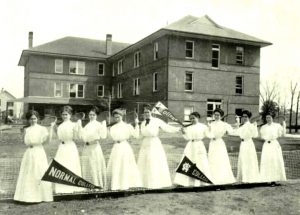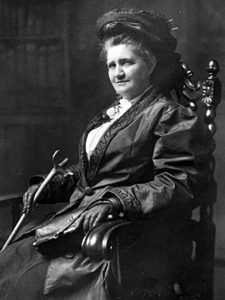Julia S. Tutwiler, “The Upton Sinclair Fast Cure for the Mind”

The academic year 1910-1911 was an awkward time for Julia Strudwick Tutwiler. A celebrated educator, prison reformer and temperance advocate, she had only recently (May 1910) been forced to retire from her position as president of the Alabama Normal College. A letter-writing campaign by some of her former students had only antagonized the school’s Board of Trustees, who cut off her pension. Nearing her seventieth birthday and in deteriorating health, she would keep up an array of reformist activities; but she was no longer an educator, and to that extent she felt adrift.

As an educator, Julia Tutwiler had tried to lead her students—whether college women at ANC or convicts at a stockade Sunday school—toward lives of reason, moderation, and self-control. The piece transcribed below, “The Upton Sinclair Fast Cure for the Mind,” may be an example of the tone she had often struck as a teacher. Upton Sinclair was a Progressive journalist and novelist, most famous today for his 1906 muckraking expose of the meatpacking industry, The Jungle.[1] By 1911 Sinclair (like Julia Tutwiler, a prohibitionist) was promoting a health regimen which included fasts of ten or twelve days.[2] Tutwiler discussed his ideas within her circle of family and friends and came up with her own more psychological insight, which she presented (together with a smattering of reminiscences) in an April letter[3] to the Montgomery Advertiser:
“Everybody here has been talking about Upton Sinclair’s Fast Cure; and some of us have tried it with good results. But have you ever tried a Fast Cure for the Mind? Did you ever resolutely resolve not to read a daily paper or a magazine for ten days, and then watch the operations of your mind to see how much stronger they were? Just try it. Ask some friend to tell you if anything very startling occurs—if Spain, Italy or Great Britain changes to a republic; somebody assassinates the Czar of Russia, or Roosevelt performs some new astounding “stunt.” If you live in a city you will see all you must really know from the bulletin boards outside the offices of the great dailies. What earthly good will it do you to learn that a man in Nevada poisoned his wife; or that a crazy lover in Oklahoma shot his sweetheart and then himself. You can learn from the census statistics that a certain number of people out of every ten thousand are going to do these same things every year, and that is enough. What good does it do you to know the man’s name? The reading of it used up a milligram of your mental vitality, and your supply is not inexhaustible.
I was once so situated that for a considerable time I was cut off from all light reading. I consider that I made more mental growth during that time than in any period of my life of equal length. When I was studying in Germany, the first Emperor—good old Wilhelm—was still reigning. Every few days the papers announced that some recalcitrant editor had been incarcerated for thirty days. Some one had written an article for his paper which displeased the censors of the press, and the editor refused to tell the name of the contributor. The editor was treated very much like a naughty little boy who is put to bed and not allowed to have any of his toys [nor] any books except his Sunday books. He was strictly prohibited from seeing the papers during his incarceration. I have thought that the rulers were very short-sighted. They did not know that he would come out of his forced retirement like a giant refreshed—like Samson after his hair had grown out. His blows would be harder than ever; if they had been “facers” before they would be regular “knock-downs” now.
I have always felt that one of the most delightful pleasures in crossing the Atlantic was that you were completely cut off from the news of the world. No daily paper, no letters no telegrams. You were a sort of Crusoe on a luxurious [moving] island, but with numerous pleasant companions. But, alas! The wireless telegraph has changed all that. A daily paper is published on every great liner. You will have to be your own mental Crusoe and resolutely withstand the temptations of dailies and weeklies for a fixed time. Try it. You will be well paid for the experience.
Julia S. Tutwiler.”
PMP
[1] Upton Sinclair, The Jungle (New York: Grosset & Dunlap, 1906).
[2] Upton Sinclair, The Fasting Cure (New York and London: M. Kennerley, 1911).
[3] Montgomery Advertiser, April 16, 1911. The published letter was checked against a handwritten draft found in the McCorvey and Tutwiler Families Paper, Hoole Special Collections Library, University of Alabama.